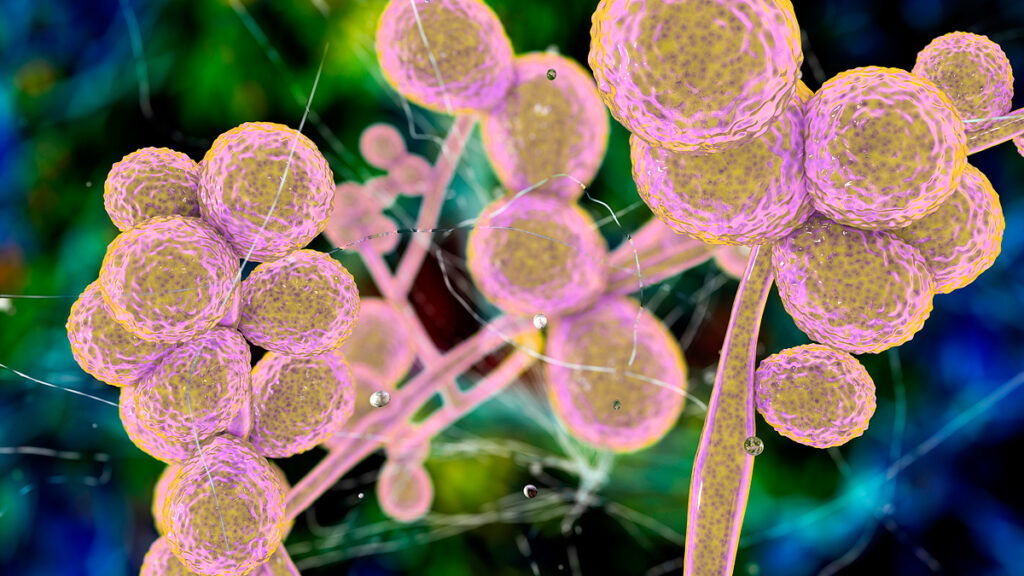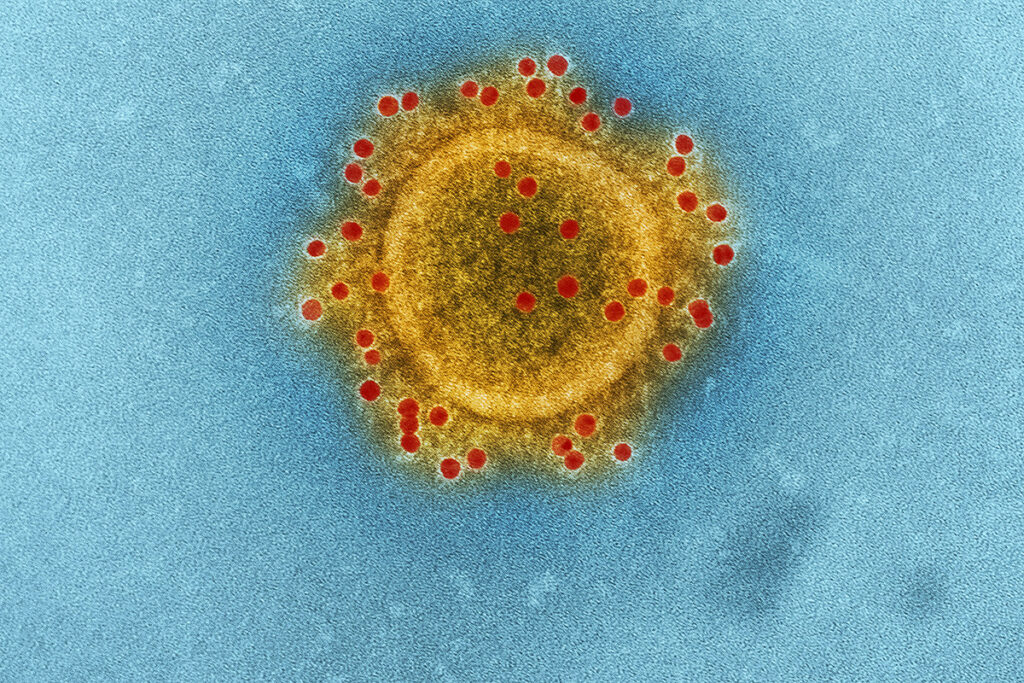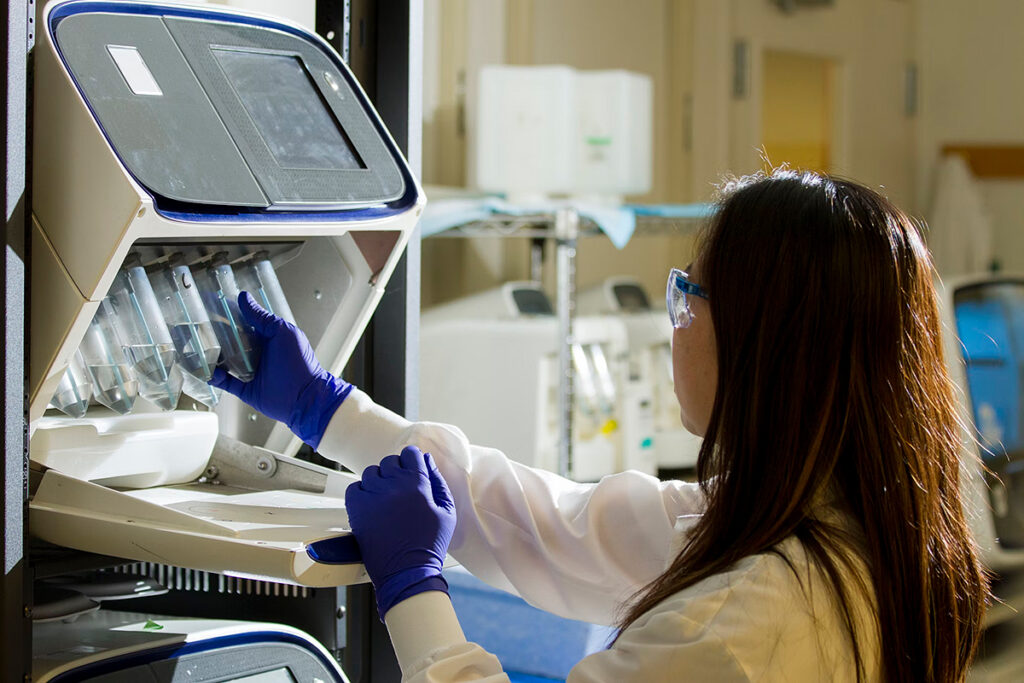Fungi accompany a person throughout life. They can live on the skin, mucous membranes, and intestines. Fungal spores enter us when we breathe, eat, or have skin injuries.
Of the 5 million known species of fungi, about 100 species can cause diseases in humans. We are protected from fungal infections by antifungal immunity, an essential component of the interferon system (IFN).
The predisposition to fungal infection depends on the functioning of the interferon system. In 2013, a group of scientists from leading universities in the United States and the Netherlands compared the work of the genes of healthy volunteers and people predisposed to chronic fungal infection.
The researchers studied the work of immune blood cells when exposed to the Candida fungus (Candida). The most active genes were those associated with the IFN system, and in people prone to chronic fungal infection, the work of some of these genes was disrupted due to mutations. Some mutations disrupted the production of IFN, while other mutations reduced the biological activity of interferon molecules.
Scientists expect that their study results will be used to treat systemic fungal infections and sepsis, the mortality rate from which reaches 40%.
Interferon activates the antifungal response of immune cells-phagocytes, which directly destroy fungal cells and fungal spores. Fungal cells are protected from external influences with chitin and melanin, which are part of their cell membrane. Therefore, phagocytes produce reactive oxygen species (ROS) to destroy the fungal membrane and damage its DNA. Interferons stimulate phagocytes to produce large amounts of ROS. Violations of this mechanism lead to chronic fungal diseases, internal organ damage, and sepsis.
In 2017, researchers from the United States studied the details of the antifungal immune response in mice. Scientists have identified the sequence of activation of different types of IFN, which leads to the production of ROS in phagocytes. A genetic violation of any part of the coordinated IFN response resulted in the animals’ death from a fungal infection. Moreover, interferon preparations restored the production of reactive oxygen species in phagocytes and promoted survival. Thus, scientists have shown a critical regulatory role of IFN in the early antifungal response.
Interferon promotes the development of specialized phagocytes that most effectively suppress fungal infection.
In 2014, scientists at the Radboud University Medical Center (Netherlands) investigated interferon’s effectiveness as part of complex antifungal therapy. All patients had a severe fungal infection affecting the internal organs, and the immune system was suppressed.
As a result of the study, the scientists found that the drug interferon contributed to the partial restoration of immune function. In patients a week after the start of treatment, the number of specialized phagocytes, which play an essential role in antifungal protection, doubled.
Risk factors for severe fungal infection are associated with the state of immunity and with surgical interventions.
David Stevens, Professor Emeritus of Medicine at Stanford University (USA), has been studying the use of interferons in fungal diseases for more than 50 years. He believes that the current sharp increase in severe fungal infections is associated with aggressive immunosuppressive therapy for cancer and autoimmune diseases, organ transplantation, and joint and bone prosthetics. Also at risk are people with suppressed immunity: taking antibiotics, AIDS, and drug addiction.
Mortality from internal tissue damage by fungal infections reaches 85% – 90% in several diseases. Traditional antifungal therapy is not effective enough and is aimed only at specific types of fungi. New methods of treatment are urgently needed.
Professor Stevens believes that the human immune system should be used as a tool for the prevention and treatment of fungal infections. The interferon system, as part of the immune system, stimulates cellular immunity and supports acquired immunity. IFN drugs produce a person’s interferon system.
With his research, the professor proves that interferon preparations are antifungal agents of a broad spectrum of action. IFN is universal in its action and can suppress both known and new types of fungi. An important field of interferons is preventing fungal diseases in people with immune genetic abnormalities and reduced immunity.
Professor Stevens believes that the accumulated knowledge about interferons’ antifungal action is sufficient for large-scale clinical research and interferons’ introduction into therapeutic practice.
Sources
- Functional genomics identifies type I interferon pathway as central for host defense against Candida albicans
- Type III interferon is a critical regulator of innate antifungal immunity
- Interferon-gamma as adjunctive immunotherapy for invasive fungal infections: a case series
- Interferon‐γ as an Antifungal



